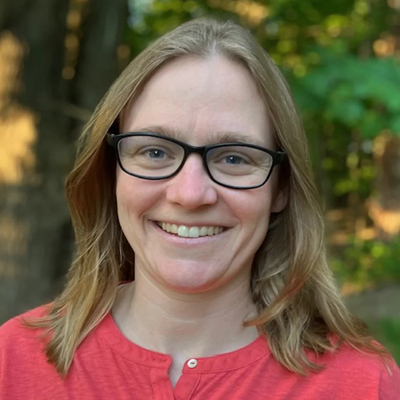By Rachael Botting
My children love bedtime lullabies, and despite our lack of musical prowess, my husband and I have been singing them songs at bedtime since our oldest was a baby. He was a terrible sleeper when he was born, so we each spent many hours in the middle of the night singing the same songs over and over again to lull our son to sleep. We grew tired of the usual lullabies quickly and mostly found ourselves singing hymns and other classic Sunday school songs.
One of the songs I found myself singing was the classic children’s song “Jesus Loves Me.” As a sleep-deprived new mom and third-year doctoral student at the time, my mind was in the habit of analyzing every faith-forming practice we were engaging as parents, and as I sung this classic Christian children’s song to my newborn, I found myself wondering about the unintended implications of its message.
Experienced Faith
Children, especially young children, learn through experience. In fact, one faith formation scholar, John Westerhoff, describes the first “stage” of faith formation as experienced faith. In the early years, children internalize their sensory experiences as they develop their understanding of God and His world. They feel God’s love long before they can speak of God’s love, and as I sung the words “For the Bible tells me so” over and over to my newborn son, I began to ponder all the ways that I hoped my child would gain experiential knowledge of God’s love as he grew up.
_
“I wanted my children to know that they could find evidence of God’s love in Scripture, but I also wanted them to know that God’s love could also be experienced in other ways.”
_
Don’t get me wrong. I firmly believe that the Bible is the supreme source of authority on matters of faith, and that it is the primary source of knowledge about God’s love for us.
But I am also an experiential educator with a strong affinity for the idea that knowledge is validated through experience, something John Wesley articulated in many of his writings. Wesley’s ideas were later organized into a theological framework known today as the “Wesleyan Quadrilateral,” which illustrates Wesley’s understanding of how reason, tradition, experience, and Scripture interact to shape our understanding of God and internalize the truth of Scripture. So I wanted my children to know that they could find evidence of God’s love in Scripture, but I also wanted them to know that God’s love could also be experienced in other ways.
At 3 weeks old, my son was far too young to listen to me talk about the Wesleyan Quadrilateral (or, at least, too young to understand) but, knowing the formative power of simple habits in the years of experienced faith, I wanted to ensure that my child (and subsequent children) understood that the God of Scripture is a God who is deeply present with us in the everyday experiences of life.
Evidence of Love
In the wee hours of the morning, over the course of several weeks, I introduced some new lyrics into the classic song. These words have served as a reminder for our whole family that the God revealed in the Bible is living and active among us, and that when we struggle to understand it intellectually, evidence of His love can be found all around us.
Chorus:
Yes, Jesus loves you.
Yes, Jesus loves me.
Yes, Jesus loves us.
The ____ tells us so.
Verse 1
Jesus loves us this I know,
For the Bible tells us so.
God’s Word gives us light each day.
Showing us the Christian way.
Verse 2
Jesus loves us this I know,
For creation tells us so.
It shines forth both day and night
Telling us of God’s great might.
Verse 3
Jesus loves us this I know,
For our friends they tell us so.
They speak truth into our lives.
In the dark they shine a light.
Verse 4
Jesus loves us this I know,
For my life it tells us so.
All my days He carried me.
I was blind but now I see.
Verse 5
Jesus loves us this I know,
For your life it tells us so.
Each day I see God in you.
Someday soon you’ll see it too.
My firstborn son is now 4.5 years old, and he shares a room with his 3-year-old brother. As we tuck them into their bunk beds at night, I ask them, “How do we know that God loves us?”
“The Bible!” one says.
“My life!” the other says.
And thus begins our lullaby time, soaking in the love of our ever-present God.
+

Rachael Botting, Ph.D, is a disciple of Jesus, a mom of boys, and a practitioner-scholar in Christian education and outdoor ministry. She has worked with Wheaton College (Illinois) since 2014, where she is currently the assistant director of the Rhythms of Faith Project. Her doctoral studies at Biola University focused on the unique and transferable faith outcomes of summer camp, but she enjoys reading, studying, and writing on a variety of topics related to faith formation, philosophy of ministry, and the role of experience in Christian education. She lives in Palmyra, New York, with her husband and three young boys. She is a member of Cross Creek Church in the Genesis Conference.











